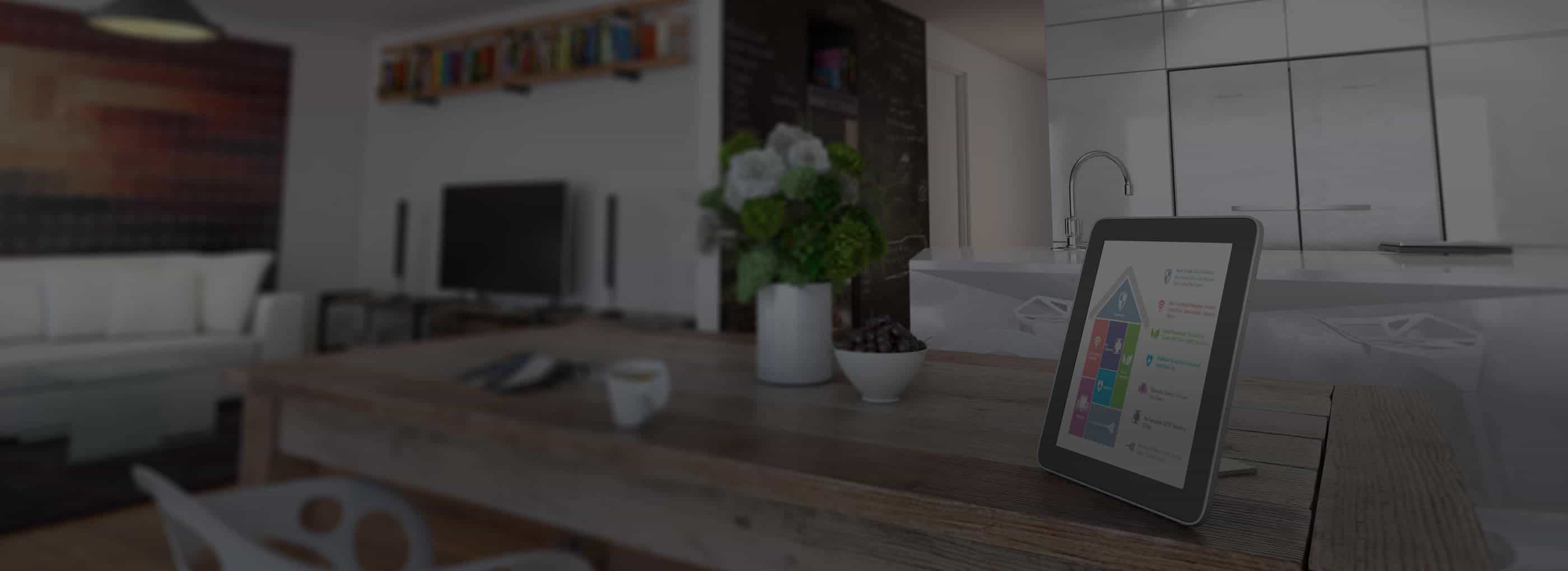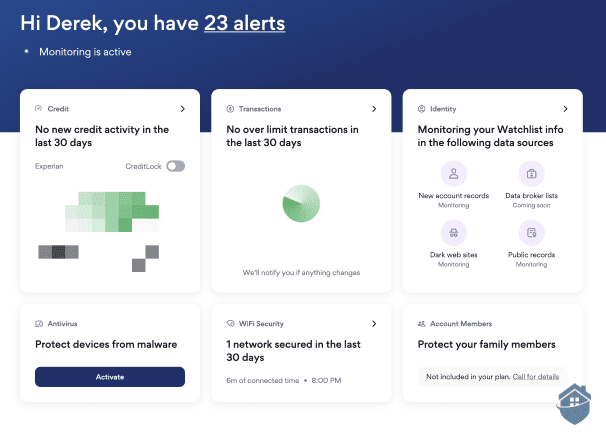We all know how 911 works. If we have an accident, we press those three digits and the operator dispatches emergency services to help us — almost like magic.
That’s how it works on cop shows, at any rate. The reality, like always, is a bit more complicated. Just ask anyone that’s ever phoned in a hit-and-run. It’s stressful!
But precisely because emergency calls often involve serious situations where family members’ and friends’ lives are at stake, it’s worth taking a closer look at what really happens when we dial 911.
Did You Know? Making prank 911 calls is illegal in most states. It could also land you in jail if your prank leads to serious injury, as happened in 2019 when 26-year-old Tyler Rai Barris dispatched a SWAT team to the house of 28-year-old Andrew Finch, who was shot dead. The judge sentenced Barris to 20 years in prison.1
Tip 1: Don’t Hesitate, Just Call
It’s not always easy to know when an emergency justifies calling 911. Like when your 3-year-old falls off the bed and bonks her head. Doctor or ambulance? Other cases are far more clear-cut. A thief is at your back door with a crowbar, for example.
If you’re on the fence about calling 911, call 911. Here’s why. The operator on the other end of the line at the local public safety answering point (PSAP) is trained to determine whether your emergency requires immediate assistance. You’re not wasting public resources by simply calling — within limits. If you kid skins their knee on the slip-and-slide, don’t call 911.
FYI: Texas has 575 PSAPs, the most of any state in the U.S.2
Tip 2: Don’t Hang Up After You Call 911
Imagine you call 911. Your adrenaline is pumping, your heartbeat is racing. You’re in full survival mode, completely focused on protecting your loved ones, your home, or yourself. In other words, staying on the line with a 911 operator you’ve just called may be your last priority. But don’t hang up — even if you dialed 911 by accident.
First, if you are managing an emergency that was serious enough for you to seek out first responders, the 911 operator will be able to tell you what to do until help arrives.
Two, if it was a butt dial, the operator is going to think you’re in such bad shape that you can’t even talk, which means they’re going to dispatch help you don’t need.
Pro Tip: Avoid putting 911 on your favorite numbers list. It’s too easy to call the operator by accident.
Tip 3: Try to Stay Calm
Everyone has their own way of dealing with emergency situations. Some of us pass out when our kids get a bloody nose (don’t look at me). Others can drive themselves to the hospital with a missing finger. Life-threatening accidents are different, however. When we’re in the thick of an emergency, many of us aren’t thinking straight. Our advice? Try to.
For one, if you’re in full panic mode, you won’t be able to follow the 911 operator’s directions. You also won’t be able to answer critical questions about the nature of the emergency. Miscalculations and bad information here could cost lives.
That said, the operative word is “try.” No one is going to blame you for freaking out when you hear a prowler rifling through your kitchen drawers. But the calmer you are — the more useful information you can give and receive — the better the odds you’re going to come out of the ordeal safe.
FYI:Quality monitored home security systems either have their own emergency call centers or cooperate with local PSAPs, so you don’t have to dial 911 yourself. They’ll do it for you. They’ll also relay critical information (where the intruders are and what they look like) to police before they get there.
Tip 4: Know Your Location
To understand why knowing your location is important, we have to take a brief look under the hood of a 911 call.
When we make a 911 emergency call, our call gets routed to the closest PSAP. The location of that call center could be nearby or counties away. For instance, if we live in a populous state with plenty of emergency call centers, like California (440) or Ohio (273), we’ve probably got one pretty close by. If we live in a rural state like New Hampshire, which has two centers total, we’re probably nowhere near the operator. What am I getting at?
The operator you’re talking to might not know anything about the town or city where you live. Describing your location accurately (county, city, street, and even landmarks) will let them relay this critical information to knowledgeable first responders faster.
Did You Know? If you’re calling from a landline, the emergency operator already knows where you are. Cellular phones are a different story. The FCC launched its Enhanced 911 (E911) service back in 1999. Today, many major wireless carriers participate, which means that 911 should be able to pinpoint your location from your mobile phone alone. If you’re not sure about your situation, contact your carrier.
Tip 5: Follow Instructions and Stay Put
Just in case you’ve never called 911, they don’t play elevator music while you wait for the ambulance to get there. They’re trying to keep you as safe as possible until help arrives. Remember, they have months, if not years, of emergency training under their belts. So stay on the line and do what those folks say.
It also goes without saying that you should stick around the scene of the emergency, even if you’re just reporting it; e.g., you witness a crime. You’re not only a witness. You could be a stand-in medic until EMS arrives.
Pro Tip: As long as your phone can pick up a signal, it should be able to dial 911, even if it isn’t activated yet.
Tip 6: Teach Your Kids How to Dial 911
I know what you’re probably thinking. If I give my 10-year-old permission to dial 911 — if I encourage them — aren’t they going to jump on the horn with the operator every time their big brother smacks them on the head? Wouldn’t it be better, in fact, for us parents to handle emergencies for our kids?
The answer is actually no. Going back to the original scenario, if your child is in the 10 to 13 age range and you’ve given them a phone, they’re ready to learn how 911 works.
If you’re waiting until they’re 13, when most experts agree that children can safely start using digital devices like smartphones,3 you can still teach them how to dial 911 from a landline.
FYI: Need some help educating your kids on 911. Kids 911 is a good place to start.4 For some important kids safety best practices, here’s our complete guide to children and home safety.
When Should I Call 911?
Back at the very beginning of this article, our first tip was, if in doubt, call 911. Well, here are a few situations in which there should be no doubt.
1. You witness a crime.
Always call the cops if you catch a crime in progress, even if the fellow in the mask turns out to be Randy from down the street trick-or-treating three months early. You can always work it out with Randy later if you’ve jumped to the wrong conclusion.
2. You see a fire.
How can you tell the difference between your neighbor burning tires in his backyard again and a bona fide house fire? You really can’t. Any sign of fire could signal catastrophic damage to come, so if you see smoke that appears to be a house fire, dial 911.
3. You’re at the scene of a bad car accident.
It’s easy to assume someone else has already phoned in a road accident, but it isn’t always the case. It’s better to be proactive here and report the emergency.
4. Someone is having what looks to be a heart attack or a serious allergic reaction.
Is a friend, relative, or bypasser clutching at their heart or throat? Do they look like they can’t breathe? Then it’s time to whip out your cellphone and call the 911 operator. It may be impossible for you to tell if someone is suffering from a terrible migraine or life-threatening angina — you’re not a doctor. But the 911 operator may know, and can help you get them the help they need.
5. Someone isn’t conscious or responsive.
Obviously, this isn’t something we see every day, thank God. If you do come across an unresponsive body anywhere, call 911 immediately.
Did You Know? 911 call centers throughout the U.S. field roughly 650,000 calls per day.5
Final Thoughts
The 911 system is incredible, and we should all be proud of it. Dial three numbers and help is on the way — no matter where you live, day or night. But as anyone who’s ever phoned in a life-threatening emergency knows, there’s more to do than just dialing three numbers.
Staying calm, giving accurate information to the operator, and following their directions may be a tall order in the heat of the moment, but it can be the difference between an unfortunate accident and something much worse.
FAQ
- Can I text 911?
It depends on your wireless carrier. But a voice call is still your best option for a 911 emergency call. If you’re deaf or can’t speak — and if text-to-911 isn’t available where you are — the FCC recommends using a teletype-based telecommunications relay service.
- What should I do if I accidentally dial 911?
If you contact 911 by accident, stay on the line so you can clarify what happened. If you hang up, the operator may assume you’re in trouble and dispatch emergency services.
- Can I call 911 for someone in another state?
All 911 calls are routed locally, so you won’t be able to reach a 911 emergency call center in another state directly. If an out-of-town family member or friend needs emergency help, your best bet is to contact local police in the area where the emergency is happening.
- Should I teach my kids to dial 911?
Yes! If your child has a phone, you should show them how 911 works.
- Am I charged when I dial 911?
No, the call costs nothing. Typically, you won’t be charged for visits from police or firefighters, either. If an ambulance is dispatched, however, you may have to foot the bill.






